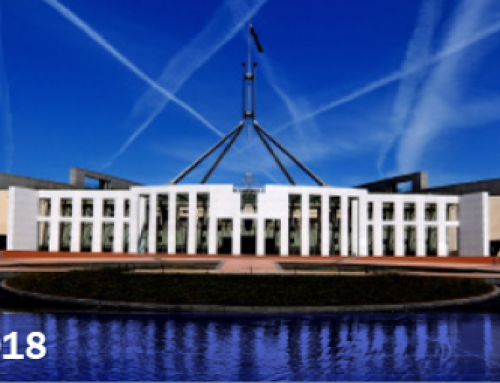This Newsletter is provided to Harvest clients, Policy Committees and corporate contacts to keep you and your employees better informed on matters regarding super and wealth. It is not a comprehensive summary. For further information, contact Mario Isaias, Noel Hucker or Inbam Devadason of Harvest on 02 8908 4300.
Drop in Concessional Cap for over 50 year olds
From 1 July 2012, all employees will be subject to a concessional contributions cap (cap) of $25,000. Over 50 year olds have had a higher cap of $50,000. These employees were due to have the cap drop to $25,000 unless they have a superannuation balance of less than $500,000, in which case, they were to retain the $50,000 cap.
The government will delay the ability of 50 year olds with below $500,000 in super balances to maintain a cap of $50,000 until 1 July 2014.
This deferral has implications for employees making additional salary sacrifice contributions, personal contributions, or have transition to retirement (TTR) pension strategies. Contributions must be reviewed by 1 July 2012. An employee at the top marginal tax rate, who currently contributes the full $50,000 pa allowed under the current cap, will pay an estimated extra $7,875 in tax from 1 July 2012.
Contributions tax doubles on incomes over $300,000 pa
The government will raise extra revenue by doubling the 15% contributions tax to 30% for Australians with pre-tax income of over $300,000. The government estimates this will impact 128,000 people in 2012-13. This only affects contributions tax, not tax on superannuation earnings, which will remain at 15%.
Income is defined for this purpose to include taxable income, concessional super contributions (e.g. SG and salary sacrifice), notional contributions to defined benefit funds, adjusted fringe benefits, total net investment losses, target foreign income, and tax-free government pensions and benefits, less child support. However, tax free income from superannuation pensions (e.g TTR) are not included.
If an employee’s income (excluding their concessional contributions) is under the $300,000 threshold, but including their concessional contributions pushes them over that threshold, the increased 30% tax will only apply to the part of the contributions which are in excess of the threshold.
It is estimated that from 1 July 2012, an employee earning over $300,000 and contributing at the maximum concessional cap of $25,000 will pay an additional $3,750 in contributions tax and therefore require an additional $7,010 in salary compensation.
Government super contribution for low income earners
The government has announced that, from 1 July 2012, it will provide income earners with taxable income below $37,000 with a $500 contribution into their super account. This will effectively refund the 15% contributions tax they pay on their compulsory superannuation guarantee contributions.
Changes to personal income tax rates
The government had previously announced changes to personal income tax rates to assist low and middle income earners with the expected cost of living increases resulting from the introduction of the Carbon Tax. From 1 July 2012, the tax free threshold will increase from $6,000 to $18,200 meaning that up to one million Australians will not need to lodge a tax return. The new tax rates from 1 July 2012 are:
Maximum age for SG contributions removed
The government has announced that from 1 July 2013, the maximum age an employee can receive Super Guarantee (SG) contributions, currently set at age 75, has been abolished.
Changes to the Living Away From Home Allowance
The Living Away from Home Allowance (LAFHA) tax concessions will be limited to employees who are living away from home and also maintaining a home for their own use in Australia, rather than employees who are not maintaining a second home at all, or maintaining a home in Australia indefinitely without using it. A 12 month limit will also be imposed on how long an employee can claim the tax concession at a particular work location. These changes apply from 1 July 2012 to new arrangements and from 1 July 2014 to current arrangements.
Golden Handshakes tax concessions change
Golden Handshakes are one off payments made to employees at the end of their working career, generally at retirement, and in recognition of a long term of service. Golden Handshakes are assessed for tax purposes as an Eligible Termination Payment (ETP) and are generally taxed at 15%. Under the new policy, the tax break will only apply to the portion of the Golden Handshake payment that, when combined with other taxable income, does not exceed $180,000. Portions above $180,000 will be taxed normally.
Increase in Super Guarantee contribution
The government has re-confirmed that it will increase the compulsory SG contribution rate from 9% to 12% between 2013 and 2019 as shown below. Employers will need to build in this initial 0.25% increase into their financial budget for next year and consider implementation at salary review time, especially if this date is not at 1 July.
Other announcements:
- Company tax rate cut: The proposed company tax rate cut from 30% to 29% has been dropped.
- Interest income discount: The Previously announced 50% discount for interest income due to start from 1 July 2013 has been dropped.
- Standard tax deductions: The government has also dropped the standard tax deduction for work related expenses which was due to start from 1 July 2013.
- Elderly recruitment incentives: The government will provide a $1,000 Jobs Bonus to 10,000 employers who recruit and employ a worker who is over 50 for more than 3 months. However, the mature age worker tax offset will be phased out from 1 July 2012.
- Minerals Resource Rent Tax (MRRT): Will be introduced from 1 July 2012.
- Company ‘Carry –Back’ tax measure: From the 2013/14 financial year, incorporated companies (non-incorporated companies, trusts, sole traders and partnerships are not eligible) can offset a current year’s tax loss (up to $1 million) against previous year’s tax paid on profits made in the previous 2 years, up to a refund amount of up to $300,000.
- Asset write off measure: Allows businesses with less that $2 million in annual turnover to write off all eligible assets up to $6,500 as well as the first $5,000 of the cost of a new car/utility vehicle.
- 40,000 new home care packages: There will be an additional 40,000 home care packages available over 5 years to help pensioners remain in their homes.
- Supplementary Allowance to Newstart, Youth Allowance and Parenting Payment: An extra yearly payment of $210 for singles and $350 for couples will be paid to recipients of these allowances.
- Private Health Rebate: The tiered private health rebate system will be introduced from 1 July 2012 as previously announced.
GENERAL ADVICE WARNING © 2012 Harvest Financial Group Pty Ltd. This Newsletter has been prepared for clients of Harvest. This document contains confidential and proprietary information of Harvest Financial Group (‘Harvest’), and is intended for the exclusive use of the recipient to whom it is addressed. The document, and any opinions on investment products it contains, may not be modified, sold or otherwise provided, in whole or in part, to any other person or entity without Harvest’s prior written permission. Information on investment management firms contained herein has been obtained from the firms themselves and other sources. While this information is believed to be reliable, no representations or warranties are made as to the accuracy of the information presented, and no responsibility or liability, including for consequential or incidental damages, can be accepted for any error, omission or inaccuracy in this report or related materials. Opinions on investment products contained herein are not intended to convey any guarantees as to the future investment performance of these products. In addition, past performance cannot be relied on as a guide to future performance. This information has been sourced from Harvest’s independent research house Mercer Investment Consulting Research and other sources.






Leave A Comment
You must be logged in to post a comment.